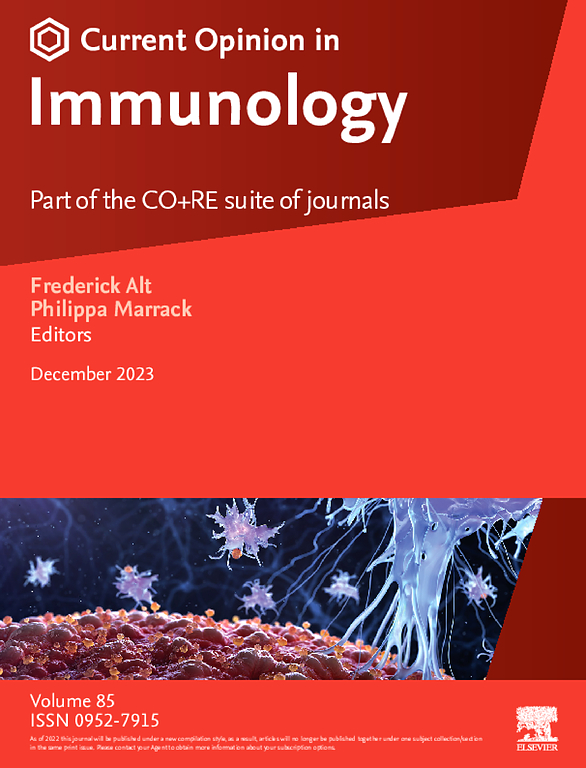AP-1转录因子在细胞毒性淋巴细胞发育和抗肿瘤免疫中的作用。
IF 6.6
2区 医学
Q1 IMMUNOLOGY
引用次数: 0
摘要
细胞毒性淋巴细胞(如自然杀伤细胞和CD8+T细胞)的正常功能对于有效的癌症免疫和免疫疗法反应至关重要。这些细胞的分化由几种转录因子(TF)控制,包括激活蛋白(AP)-1家族的成员。AP-1家族成员的活性受各种免疫信号通路的调节,这些通路可以由激活或抑制受体以及细胞因子触发。AP-1转录因子控制的靶基因是产生对病原体或恶性肿瘤免疫的核心。在这里,我们概述了目前对AP-1TFs如何调节细胞毒性淋巴细胞的理解。本文章由计算机程序翻译,如有差异,请以英文原文为准。
AP-1 transcription factors in cytotoxic lymphocyte development and antitumor immunity
The proper functioning of cytotoxic lymphocytes, such as natural killer and CD8+ T cells, is essential for effective cancer-immunity and immunotherapy responses. The differentiation of these cells is controlled by several transcription factors (TFs), including members of the activator protein (AP)-1 family. The activity of AP-1 family members is regulated by various immune signaling pathways, which can be triggered by activating or inhibitory receptors as well as cytokines. The target genes controlled by AP-1 TFs are central to generate immunity to pathogens or malignancies. Here, we provide an overview of the current understanding of how AP-1 TFs regulate cytotoxic lymphocytes.
求助全文
通过发布文献求助,成功后即可免费获取论文全文。
去求助
来源期刊
CiteScore
13.30
自引率
1.40%
发文量
94
审稿时长
67 days
期刊介绍:
Current Opinion in Immunology aims to stimulate scientifically grounded, interdisciplinary, multi-scale debate and exchange of ideas. It contains polished, concise and timely reviews and opinions, with particular emphasis on those articles published in the past two years. In addition to describing recent trends, the authors are encouraged to give their subjective opinion of the topics discussed.
In Current Opinion in Immunology we help the reader by providing in a systematic manner: 1. The views of experts on current advances in their field in a clear and readable form. 2. Evaluations of the most interesting papers, annotated by experts, from the great wealth of original publications.
Current Opinion in Immunology will serve as an invaluable source of information for researchers, lecturers, teachers, professionals, policy makers and students.
Current Opinion in Immunology builds on Elsevier''s reputation for excellence in scientific publishing and long-standing commitment to communicating reproducible biomedical research targeted at improving human health. It is a companion to the new Gold Open Access journal Current Research in Immunology and is part of the Current Opinion and Research(CO+RE) suite of journals. All CO+RE journals leverage the Current Opinion legacy-of editorial excellence, high-impact, and global reach-to ensure they are a widely read resource that is integral to scientists'' workflow.

 求助内容:
求助内容: 应助结果提醒方式:
应助结果提醒方式:


